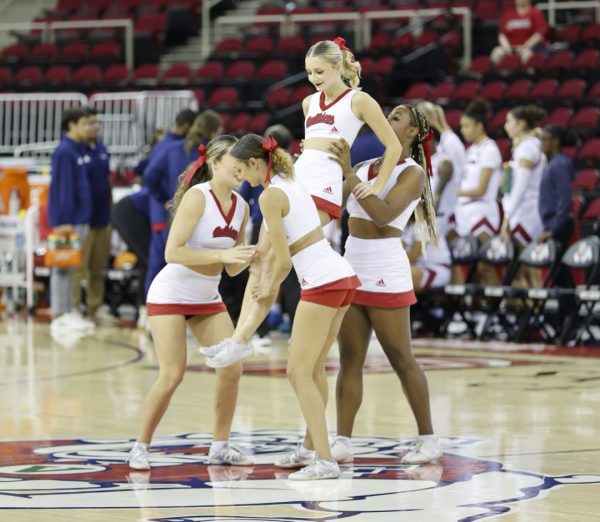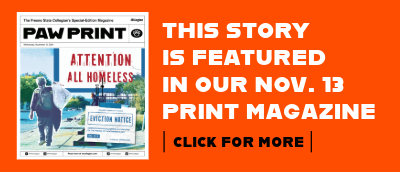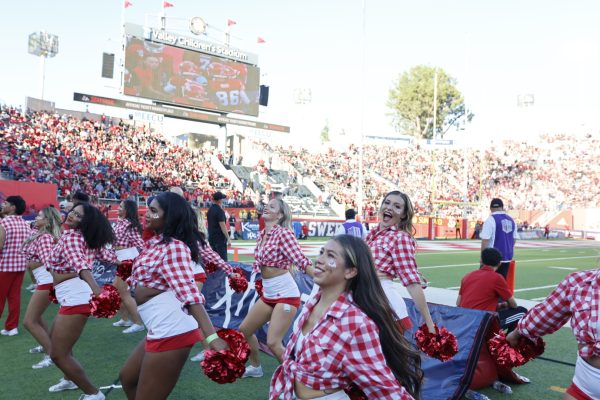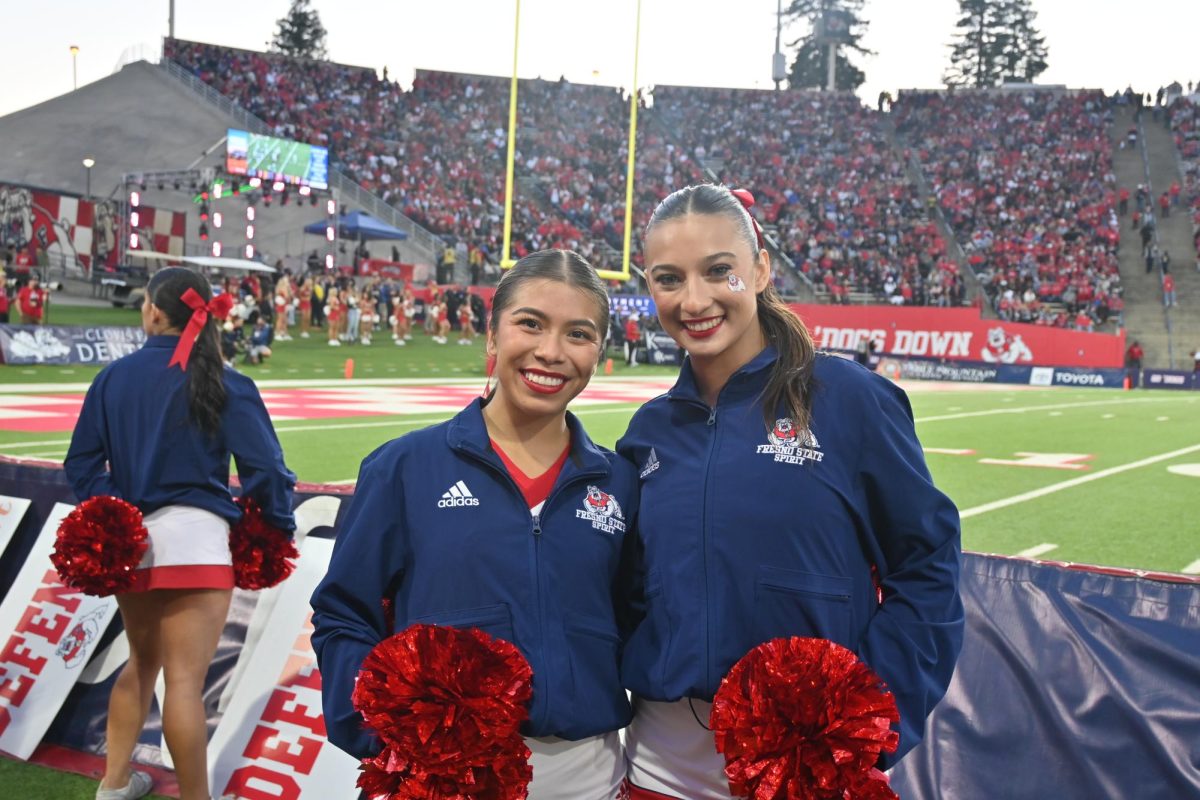The Fresno State cheer team’s practice schedules are intense, especially during the football season, having three-hour practices at a minimum of three days a week. They also have to make time to balance school as well as the full-time jobs that many of them have.
“I work four to five days a week, I am a manager at a store, so that takes up a lot of my time as well with school and cheer,” said fourth-year Fresno State cheerleader Rylie Bottimore.
While school and grades are a big aspect of their eligibility, cheerleading is still not considered a sanctioned sport by Fresno State.

The Collegian reached out to two coaches for the Fresno State cheer team for their opinion on these matters but did not receive a comment.
Cheer is classified as a club and does not get access to several facilities that many of the other athletic teams on campus get because of this classification. That includes trainers, food, the nutrition center and many other resources that other athletic teams on campus are given.
 One perk that the cheerleaders do not receive access to is priority registration like other student-athletes on campus. This affects cheer because they have a harder time scheduling their classes around their practice times, often resulting in them having to take the classes at times they didn’t plan.
One perk that the cheerleaders do not receive access to is priority registration like other student-athletes on campus. This affects cheer because they have a harder time scheduling their classes around their practice times, often resulting in them having to take the classes at times they didn’t plan.
“We do put so much of our time and effort into what we do and if you ask any of us why we still continue to do it you will probably get the answer, ‘because we love it,’” Bottimore said.
Bottimore also said that with practice and class scheduling conflicts she has found herself slightly behind. This is not an uncommon occurrence and is also an issue with fourth-year Fresno State cheerleader and forensic behavior major, Kiara Zurita.
“A lot of the people on the team are taking 18 units and above so it really affected us,” Zurita said.
Zurita added that it is more than just cheering on the sidelines, at this level, they are doing stunts that are incredibly strenuous and dangerous as well.
Game days are the hardest on the body because those days are all hands on deck from the beginning of the day to the end.
“Games take a really big toll on our bodies, we kind of call it a cheer hangover after and we genuinely feel like we just got beat up,” Zurita said.
The cheer season does not end after football season. After that, is basketball season, then they will be pushing their physical limits in preparation for the highly anticipated national competition in Daytona set for April 2025.

Both cheerleaders interviewed want it to be known that they in no way have any ill feelings toward Fresno State. They are proud of their school and are more than happy to be cheering for the university, they just wish they were able to feel a little bit of the appreciation other sports on campus receive.
Zurita mentioned that with the induction of the new athletic director, Garrett Klassy, the cheerleaders have felt more warmth from the administration.
“[Klassy] has been really great about being a bigger advocate,” Zurita said. “He actually came in and spoke to us personally and I think that meant a lot for a lot of the girls on the team just knowing that there is someone backing us up on that end.”
This improvement in administration efforts is important to establish trust.
Schools like Texas Tech have big cheer programs because they have the means to afford them. They can offer benefits such as $1000 scholarships, made in two payments, for all team members who meet requirements.
Some people do not see the point in going through with changes to support cheer, but regardless of its conditions, cheer will continue to do all it can to support their school.
Without support from schools, the subpar treatment of cheerleaders will continue to go on. At the National Football League (NFL) level, though it is typically more dance than it is cheerleading, they are not paid livable wages. The average income in California is a little over $66,000 annually. On average, an NFL cheerleader makes around $22,000 each year.
Zurita and Bottimore both reported that they and their teammates work full-time jobs and cheer on the side because they love it.
“You just get used to it, which is not cool, but that is just the way it goes,” Bottimore said.






Jade Hardin • Nov 15, 2024 at 1:03 pm
This was a great read! I am a supporter of Fresno State and have family that attend currently and those that are alumni. As a former cheerleader and coach, I hope the cheerleaders of Fresno State are allowed the same access to resources the others are getting. Cheerleading IS clearly physical and cheerleading is competitive and should be deemed a sport: This article is a step in the right direction to be heard. Go Bulldogs!